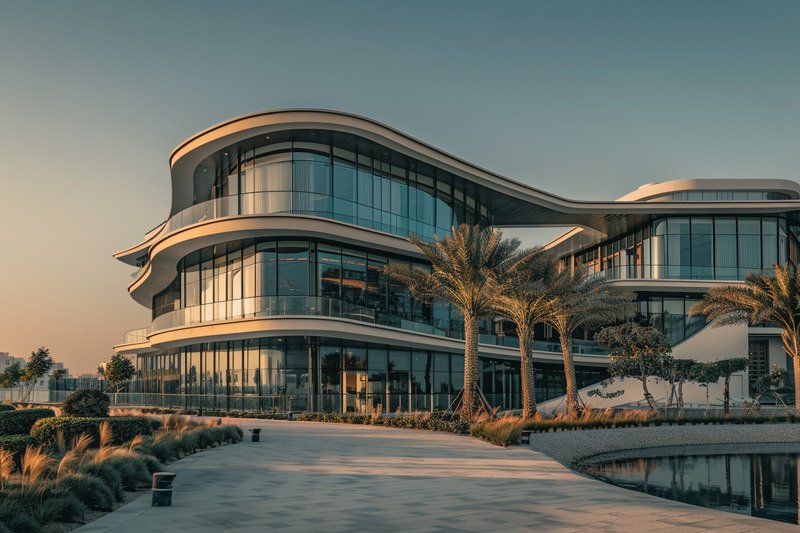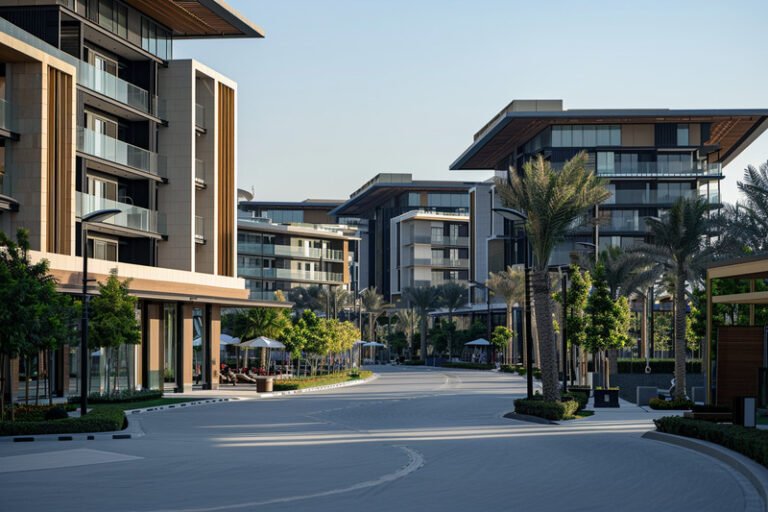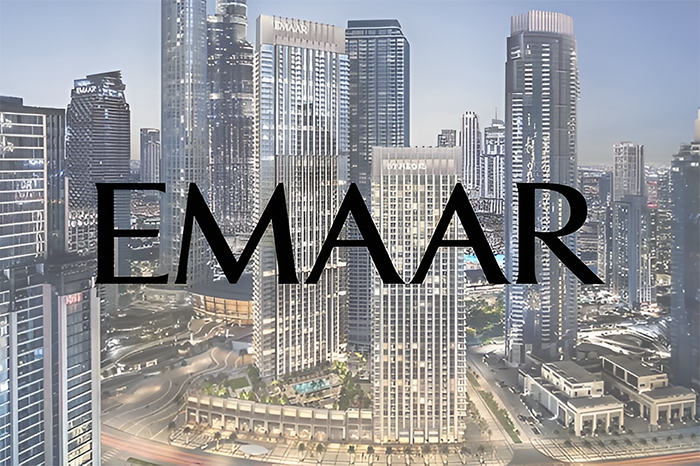Tax Implications of Buying Property in Dubai

When considering purchasing real estate in Dubai, you should be mindful of various tax implications. While Dubai’s tax-friendly atmosphere is a major attraction, it’s not completely tax-free.
Buying real estate in Dubai comes with several tax benefits:
- Property transfer fees are around 4% of the purchase price, typically split between buyer and seller
- Residential property transactions are exempt from the 5% VAT, but commercial properties are not
- Dubai has no annual property taxes, simplifying property management
- Rental income isn’t subject to local tax, though non-residents should consult their home country tax laws
- No capital gains tax on property sales in Dubai
Property Transfer Fees
When buying property in Dubai, you must consider the property transfer fees, which are typically around 4% of the purchase price. These fees are crucial and should be included in your initial budget. The Dubai Land Department (DLD) usually collects these fees to legally transfer property ownership.
The transfer fees are split between the buyer and the seller, with the buyer usually covering the larger portion. It’s essential to have these funds ready during the final stages of the purchase. Clarify early on if the seller includes these fees in the final sale price.
Let us help you find the perfect property. Contact us to get started.
Key points to remember:
- The property transfer fee is calculated based on the property’s sale price, not its market value
- Be aware of any additional administrative fees that might arise during the transfer process
- Consulting a real estate agent or legal expert can provide further insights and streamline your property acquisition in Dubai
Value Added Tax (VAT)
When purchasing property in Dubai, be aware of Value Added Tax (VAT) implications. Introduced in January 2018, VAT is set at 5%.
Important points to consider:
- Residential property transactions are generally exempt, covering both sales and leases. However, this exemption applies only to the first supply within three years of completion. Subsequent transactions aren’t subject to VAT.
- Commercial property purchases, like offices or retail spaces, require paying VAT at the standard rate.
- For services related to residential properties, such as maintenance or management, VAT is applicable.
Understanding VAT implications is crucial to avoid unexpected costs. Consult a tax advisor or real estate expert to navigate these complexities and ensure you’re prepared for any tax obligations associated with your investment.
Annual Property Taxes
In Dubai, real estate investors and homeowners benefit from no annual property tax. This policy makes property ownership more attractive compared to other global markets.
Advantages of no annual property taxes:
- Better financial planning, allowing you to reinvest those funds into other opportunities, enhancing your investment portfolio
- Significant cumulative tax savings for those with multiple properties
- Fewer bureaucratic hurdles, simplifying property management
- Saves time and reduces administrative burdens, making property investment in Dubai easier
Rental Income Tax
Dubai’s lack of annual property tax is a significant advantage for real estate investors. However, understanding the tax implications of rental income is equally crucial. Dubai’s tax policies can make it an attractive investment destination, but you must be aware of your obligations both locally and in your home country.
In Dubai, rental income isn’t subject to local tax. Nonetheless, if you’re a non-resident, your home country may require you to declare this income and pay taxes accordingly. Staying informed about these regulations is essential to maximize your investment returns.
Here are some key points to keep in mind:
- Double Taxation Agreements (DTAs): These agreements can help you avoid being taxed twice on the same income.
- Tax Residency Certificates: Obtaining this certificate can sometimes alleviate tax obligations in your home country.
- Professional Advice: Consulting with a tax advisor familiar with both Dubai and your home country’s tax laws is highly recommended.
- Record Keeping: Maintain thorough records of all rental income and related expenses for accurate reporting.
Capital Gains Tax
Navigating the capital gains tax landscape in Dubai is straightforward, as the emirate doesn’t impose a capital gains tax on property sales. When you sell a property in Dubai, you won’t need to calculate a percentage of your profit to pay to the government. This makes Dubai an attractive destination for property investors looking to maximize returns.
However, if you’re a foreign investor, your home country might have tax regulations. Some countries require you to declare overseas property sales and could impose taxes on the profits.
Dubai’s tax-friendly environment encourages real estate investment. But remember, other costs can affect your overall profit. These include:
- Agency fees
- Registration fees
- Maintenance costs
Conclusion
When buying property in Dubai, understanding the tax implications is crucial. Dubai’s real estate market has unique tax features.
Important points to remember:
- You’ll share the 4% property transfer fee with the seller.
- For commercial properties, a 5% VAT applies.
- Dubai doesn’t impose annual property taxes or capital gains tax, which attracts many investors.
- Consider your home country’s tax laws, especially for rental income.
This knowledge ensures informed, financially sound decisions.
Let us help you find the perfect property. Contact us to get started.






